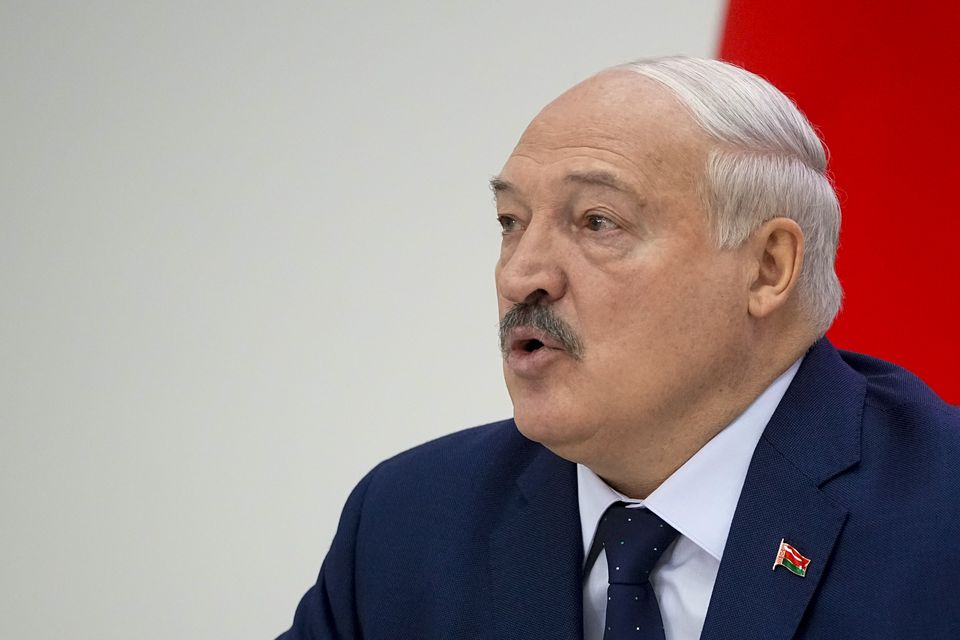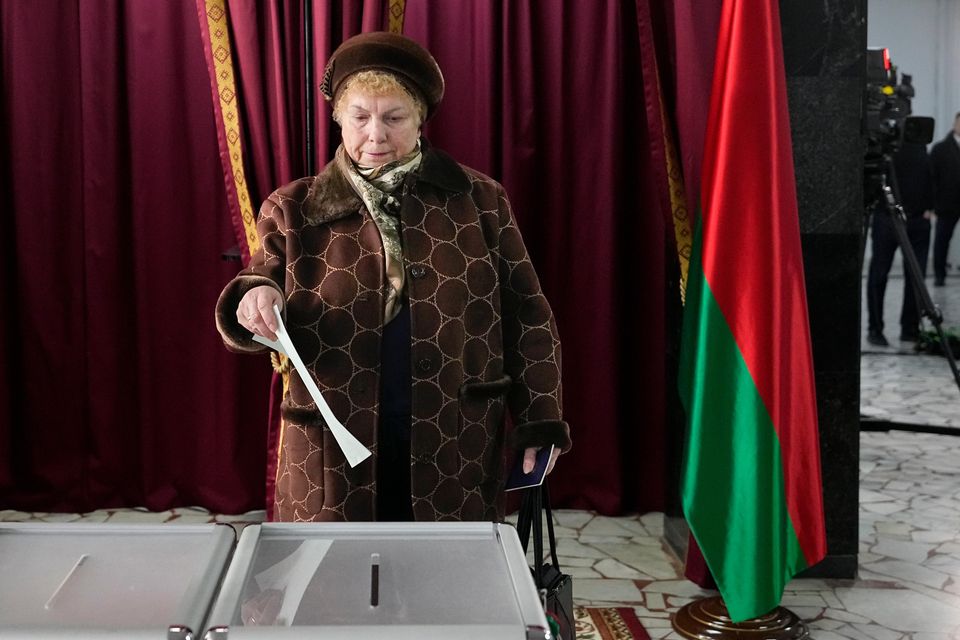President Alexander Lukashenko has won a a seventh term in office in Belarus, according to the country’s Central Election Commission.
According to a statement by the Central Election Commission, the 70-year-old leader took nearly 87% per cent of the vote in Sunday’s election after a campaign in which four token challengers all praised his rule.
Mr Lukashenko has been in power since 1994 and has ruled the country of nine million people with an iron hand. He relies on subsidies and political support from Russia. He allowed Moscow to use the country’s territory to invade Ukraine in 2022 and later hosted some of Russia’s tactical nuclear weapons.
He still campaigned with the slogan, “peace and security,” arguing he has saved Belarus from being drawn into war
His opponents, many of whom are imprisoned or exiled abroad by his unrelenting crackdown on dissent and free speech, called the election a sham — much like the last one in 2020 that triggered months of protests.
Belarusian President Alexander Lukashenko speaks to the media after voting in presidential elections in Minsk (Pavel Bednyakov/AP)
The crackdown saw more than 65,000 arrests, with thousands beaten, bringing condemnation and sanctions from the West.
His iron-fisted rule since 1994 earned Mr Lukashenko the nickname of “Europe’s last dictator”, relying on subsidies and political support from close ally Russia.
“It’s better to have a dictatorship like in Belarus than a democracy like Ukraine,” Mr Lukashenko said in his characteristic bluntness.
His reliance on support from Russian President Vladimir Putin helped him survive the 2020 protests.
Observers believe Mr Lukashenko feared a repeat of those mass demonstrations amid economic troubles and the fighting in Ukraine, and so scheduled the vote in January, when few would want to fill the streets again, rather than in August. He faces only token opposition.
“The trauma of the 2020 protests was so deep that Lukashenko this time decided not to take risks and opted for the most reliable option when balloting looks more like a special operation to retain power than an election,” Belarusian political analyst Valery Karbalevich said.
Mr Lukashenko repeatedly declared that he was not clinging to power and would “quietly and calmly hand it over to the new generation”.
His 20-year-old son, Nikolai, travelled the country, giving interviews, signing autographs and playing piano at campaign events. His father has not mentioned his health, even though he was seen having difficulty walking and occasionally spoke in a hoarse voice.
“Lukashenko campaigned actively despite the apparent health issues, and it means that he still has plenty of energy,” Mr Karbalevich said. “The successor issue only becomes relevant when a leader prepares to step down. But Lukashenko isn’t going to leave.”
Leading opponents have fled abroad or were thrown in prison. The country holds nearly 1,300 political prisoners, including Nobel Peace Prize laureate Ales Bialiatski, founder of the Viasna Human Rights Centre.
Since July, Mr Lukashenko has pardoned more than 250 people described as political prisoners by activists. At the same time, however, authorities have sought to uproot dissent by arresting hundreds in raids targeting relatives and friends of political prisoners and anyone participating in online activities.
Authorities detained 188 people last month alone, Viasna said. Activists and those who donated money to opposition groups have been summoned by police and forced to sign papers saying they were warned against participating in unsanctioned demonstrations, rights advocates said.
A woman casts her ballot at a polling site (Pavel Bednyakov/AP)
Mr Lukashenko’s four challengers on the ballot were all loyal to him, praising his rule.
“I’m entering the race not against, but together with Lukashenko, and I’m ready to serve as his vanguard,” said Communist Party candidate Sergei Syrankov, who favours criminalising LGBT+ activities and rebuilding monuments to Soviet leader Josef Stalin.
Candidate Alexander Khizhnyak, head of the Republican Party of Labour and Justice, led a voting precinct in Minsk in 2020 and vowed to prevent a “repeat of disturbances”.
Oleg Gaidukevich, head of the Liberal Democratic Party, supported Mr Lukashenko in 2020 and urged fellow candidates to “make Lukashenko’s enemies nauseous”.
The fourth challenger, Hanna Kanapatskaya, actually got 1.7% of the vote in 2020 and says she is the “only democratic alternative to Lukashenko”, promising to lobby for freeing political prisoners but warning supporters against “excessive initiative”.
Opposition leader-in-exile Sviatlana Tsikhanouskaya, who fled Belarus under government pressure after challenging the president in 2020, told The Associated Press that Sunday’s election was “a senseless farce, a Lukashenko ritual”.
Voters should cross off everyone on the ballot, she said, and world leaders should not recognize the result from a country “where all independent media and opposition parties have been destroyed and prisons are filled by political prisoners”.
“The repressions have become even more brutal as this vote without choice has approached, but Lukashenko acts as though hundreds of thousands of people are still standing outside his palace,” she said.

